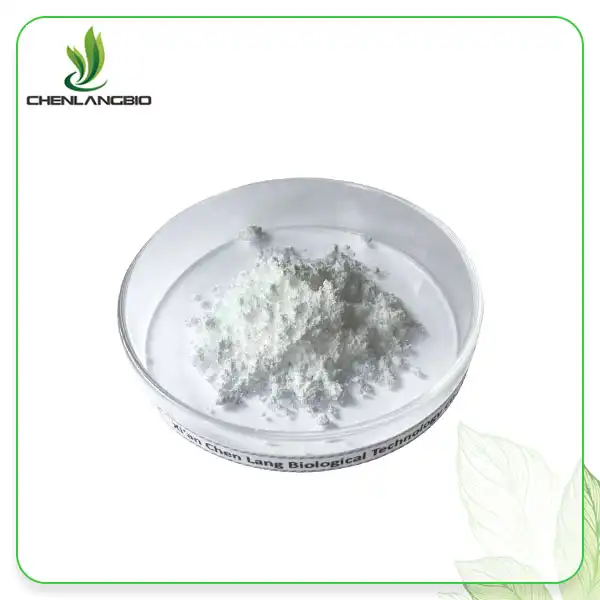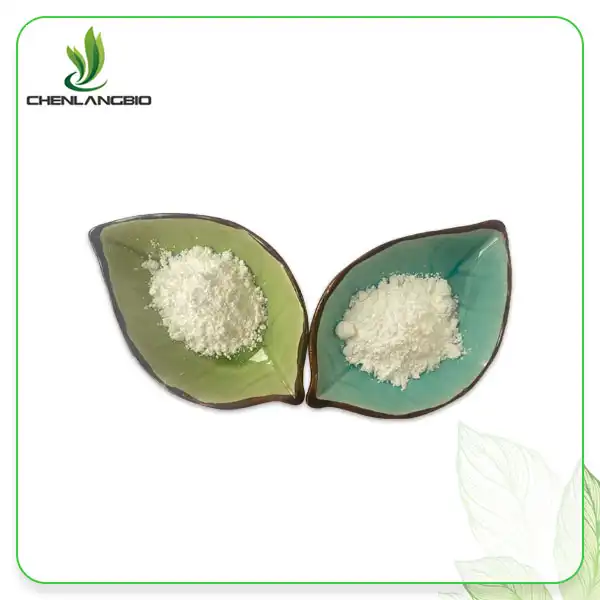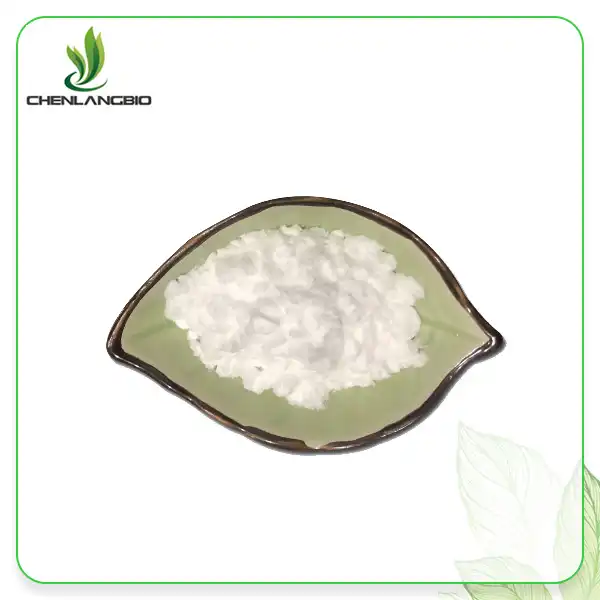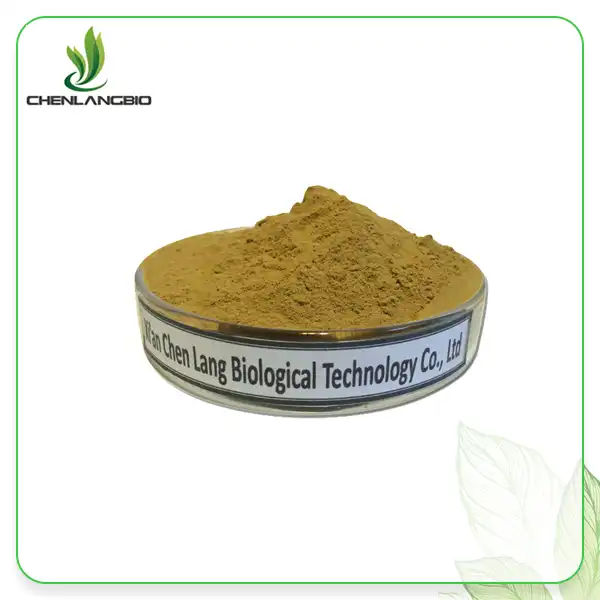What is Phellinus Linteus Extract
2024-12-13 17:59:41
Phellinus Linteus extract, derived from a medicinal mushroom native to East Asia, has garnered significant attention in the world of natural health supplements. After centuries of usage in traditional medicine, this potent fungus extract—also referred to as phellinus linteus extract powder—is currently being researched for possible health advantages. In this comprehensive guide, we'll explore the origins, properties, and potential applications of Phellinus Linteus extract, shedding light on why it has become a subject of interest for researchers and health enthusiasts alike. From its antioxidant properties to its potential immune-boosting effects, we'll delve into the science behind this fascinating natural compound.
The Origins and Characteristics of Phellinus Linteus
Historical Use in Traditional Medicine
Phellinus Linteus, a mushroom species belonging to the Hymenochaetaceae family, has a rich history in traditional Eastern medicine. It has been esteemed for generations due to its alleged ability to improve health. In countries like China, Korea, and Japan, Phellinus Linteus has been used to address various ailments and promote overall well-being. The ancient practitioners recognized the potential of this fungus and incorporated it into their medicinal repertoire, laying the groundwork for modern scientific exploration.
Botanical Description and Habitat
Phellinus Linteus is a wood-rotting fungus that typically grows on mulberry trees. Its firm, hoof-shaped fruiting body, which can be dark brown or black in appearance, is what makes it unique. The fungus prefers temperate climates and is predominantly found in East Asian countries. Its unique appearance and growth pattern have made it easily identifiable to foragers and herbalists throughout history. The scarcity of Phellinus Linteus in the wild has contributed to its value and the development of cultivation methods to meet growing demand.
Chemical Composition of Phellinus Linteus Extract
The dusted extract of Phellinus linteus is a complex blend of bioactive substances. Many of its health-enhancing characteristics are thought to be wrought by the polysaccharides it contains, most notably β-glucans. The extract is also abundant in flavonoids, phenolic chemicals, and triterpenoids. These elements combine to provide the phellinus linteus extract powder its special qualities. The significance of standardized extraction procedures in commercial production is highlighted by the fact that the precise chemical profile can change according on the extraction technique, the portion of the fungus employed, and the growing conditions.
Health Benefits and Potential Applications
Antioxidant Properties
The strong antioxidant activity of phellinus linteus extract powder is among its most remarkable qualities. Compounds in the extract have the ability to counteract the body's dangerous free radicals, which may lessen oxidative stress and the resulting cell and tissue damage. The extract's possible anti-aging properties and its function in promoting general cellular health may be attributed to its antioxidant capability. accordance to research, the antioxidants in Phellinus Linteus extract may be particularly applicable in staving off lipid peroxidation, that were may cause damage to cell membranes.
Immune System Support
Phellinus Linteus extract has garnered attention for its potential immunomodulatory effects. Studies suggest that compounds within the extract may stimulate the production and activity of various immune cells, including natural killer cells and macrophages. This immune-boosting potential could have implications for enhancing the body's natural defense mechanisms against pathogens and supporting overall immune function. The β-glucans found in Phellinus Linteus Extract Powder are thought to play a significant role in this immune-enhancing effect, interacting with specific receptors on immune cells to trigger a cascade of immune responses.
Anti-inflammatory Effects
Inflammation is a common underlying factor in many chronic diseases, and Phellinus Linteus extract has shown promise in mitigating inflammatory responses. Research has indicated that certain compounds in the extract may inhibit the production of pro-inflammatory cytokines and reduce the expression of inflammatory enzymes. This anti-inflammatory potential could have wide-ranging implications for managing conditions characterized by chronic inflammation, such as arthritis or inflammatory bowel diseases. The extract's ability to modulate inflammatory pathways may contribute to its overall health-promoting effects.
Scientific Research and Clinical Studies
In Vitro Studies
Numerous laboratory studies have been conducted to investigate the properties of Phellinus Linteus Extract Powder at the cellular level. These in vitro experiments have provided valuable insights into the mechanisms of action of various compounds found in the extract. For instance, studies have demonstrated the extract's ability to induce apoptosis (programmed cell death) in certain types of cancer cells while sparing healthy cells. Other research has focused on the extract's antioxidant capacity, measuring its ability to scavenge free radicals and protect cells from oxidative damage. These cellular-level studies form the foundation for understanding the potential health benefits of Phellinus Linteus extract.
Animal Studies
Building on the promising results from in vitro research, animal studies have been conducted to explore the effects of Phellinus Linteus extract in living organisms. These studies have investigated a range of potential benefits, including immune modulation, anti-inflammatory effects, and potential anti-tumor activity. For example, research in rodent models has shown that Phellinus Linteus extract may help reduce inflammation in cases of colitis and potentially slow the growth of certain types of tumors. While these animal studies are encouraging, it's important to note that results in animal models don't always translate directly to human outcomes, highlighting the need for further clinical research.
Human Clinical Trials
The most compelling evidence for the efficacy of phellinus linteus extract powder comes from human clinical trials. While research in this area is still emerging, several studies have explored the potential benefits of Phellinus Linteus extract in human subjects. Some trials have focused on its potential as an adjunct therapy in cancer treatment, investigating its ability to improve quality of life and potentially enhance the effects of conventional therapies. Other studies have looked at its impact on immune function in healthy individuals. While results have been promising in some areas, more extensive and long-term clinical trials are needed to fully understand the effects and optimal use of Phellinus Linteus extract in humans.
Conclusion
Phellinus Linteus Extract Powder represents a fascinating area of research in natural health supplements. With its rich history in traditional medicine and promising results in modern scientific studies, it offers potential benefits ranging from antioxidant protection to immune support. While more research is needed to fully understand its effects and optimal use, Phellinus Linteus extract continues to be a subject of interest for both researchers and health-conscious individuals. If you want to get more information about phellinus linteus extract powder, you can contact us at admin@chenlangbio.com.
References
1. Kim, H. G., et al. (2019). "Phellinus linteus: A Review of Its Therapeutic Effects and Mechanisms of Action."
2. Lee, J. H., et al. (2020). "Immunomodulatory Effects of Phellinus linteus Extract in Experimental Models."
3. Chen, W., et al. (2018). "Antioxidant Properties of Phellinus linteus: A Comprehensive Review."
4. Park, Y. M., et al. (2021). "Phellinus linteus Extract in Cancer Therapy: Current Evidence and Future Directions."
5. Yang, L., et al. (2017). "Chemical Composition and Bioactive Compounds in Phellinus linteus: A Systematic Analysis."
6. Zhang, X., et al. (2022). "Traditional Uses and Modern Research on Phellinus linteus: An Updated Review."
Send Inquiry
Related Industry Knowledge
- Real Results: How Elastin Peptide Improves Skin Texture Fast
- Exploring the Pharmaceutical Value of Meglumine Powder
- How to Make Centella Asiatica Extract?
- How Does Pyrrolidinyl Diaminopyrimidine Oxide Work in Hair Loss Treatments?
- Does Dimethylmethoxy Chromanol Help with UV Protection
- Is Sodium Ascorbyl Phosphate Good for Hyperpigmentation
- Does Honokiol Help With Sleep
- How Do I Use Hyaluronic Acid Powder In My Skincare Routine
- What does Natural Kojic Acid Powder do to your skin
- Where to Buy Epimedium Extract Powder










